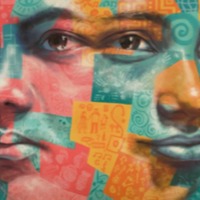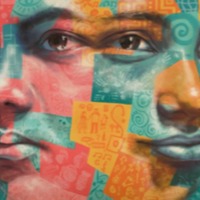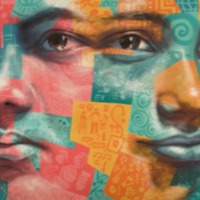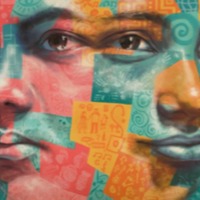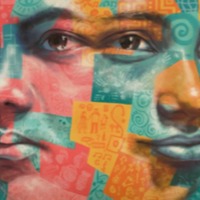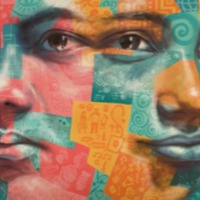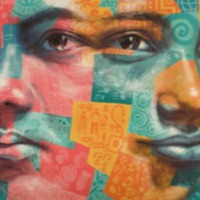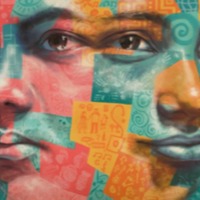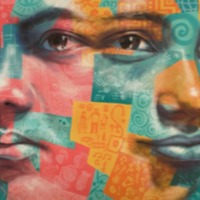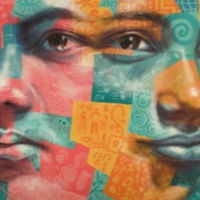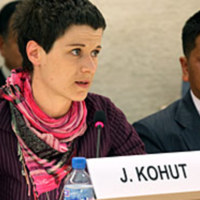
It is only with the heart that one can see rightly what is essentially invisible to the eye. And I am, at the moment, surrounded safely by these amazing individuals that I deeply admire and that I can only look up to, because they are all brave enough to look with their eyes, to see with their hearts, and to act with their energy and power.
My name is Jana, I was born in Bosnia. I am 30 years old and I am very grateful for the invitation to be part of this special event and share my experiences and thoughts. What I am about to share is like a short movie compared to numerous other stories of trafficking survivors. And each day I am extremely aware of how lucky I was because every other day spent in that horrible cage consumes another piece of you: your freedom, and your humanity, violently.
My story happened in Ljubljana Slovenia, where I moved in September 2004. I moved there to continue my university studies. I was alone and distant from all my friends that I had, from the world that I knew. And then I quickly found myself surrounded with strangers. One of my new friends, a girl, she said her name was Romana, offered me to stay in her apartment, since at that moment I did not know where I am going to live. She was very kind to me and supportive so I entirely trusted her. I was looking for a part-time job to support myself during the school year. One day, in October 2004, she came home and told me that she had organised an interview for me at an accounting firm. After that, I never saw Romana again.
The next morning, I went to an office where I sat down for an interview with a woman. The interview had lasted about ten minutes, when two men entered the room and dragged me away to a car. I was screaming and resisting. I was taken somewhere blindfolded and raped many times and beaten because I was resisting. I was drugged with heroin. All my things were taken and I was forced to wear sexually provocative clothes. I was forced to do prostitution in Ljubljana for about 4 months. I had 6-10 customers each day and night, and changed around 10 different locations in the period I was captured. Men who came to me were coming from all age groups, social standings, educational backgrounds, employed or unemployed. Often policemen, or criminals. I was starved sometimes, raped at first, later only beaten. I was driven from location to location blindfolded and naked. Only covered with a white sheet. I was repeatedly threatened in order to obey them, especially by the life and freedom of my little sister, and I was constantly reminded how easy it is for them to put her in my place.
At the end of January 2005, I escaped my traffickers. I remembered that day was quiet and nobody was coming to my room for hours. The person who helped me with the escape was the same person that was selling my services and the services of the other girls. A woman that worked on the telephone; the same one that interviewed me the day that they captured me. She slid my passport under my door, and I knew that was my chance. That was my exit.
Today we live in times where slavery is still all around us. As we move forwards, or strive to move forwards, in providing more freedom and equality, and basic human rights for all, we have on the other side this horrible fact. Do we really need millions more victims in order to experience a true wake-up call? I really wonder.
How many more 13-year old girls: your daughter, my sister, our children, need to be forced into prostitution? How many more need to choose it on their own, for those who create the demand, those who manage supply and those who drove profit out of their bodies and lives? When will we stop to maintain our economy, by enslaving and abusing the poor, the weak, the vulnerable? How many more will be put into the number of some statistics; what number is high enough in this age of cruellest slavery? When will we all stand face to face with this issue? When will we really admit it? I hope we all know that ignorance and silence means engagement in the crime, nothing less. How can we prevent it? Only together and we are in this together. It is our responsibility, it is our personal business. These are our girls and boys, these are our children, our mothers and fathers, and this is our world. We should all start displaying serious understanding about, and clear attitude against trafficking and prostitution and their roots. They are completely interrelated and therefore we cannot treat them separately in any way. One encourages the other and one is part of the other. Remember that most of the girls who are presumably choosing to become a prostitute are underage girls: 13, 14 years old. That is human trafficking too.
Governments, legal institutions, media, entertainment industry, army, medical and educational institutions, and all others that have powerful influence, need to display a clear and understandable attitude, views and laws about these issues. Educate, provide information, encourage action, discussion, and involvement, be it through trustworthy role models. Projects should be encouraged and financially supported especially those local community projects whose aim is to raise awareness, educate, and engage people in all fields. From the ground to the top, we need to create networks. From governments, educational, legal, social institutions, businesses, to schools, local communities, individuals. We have to involve all.
Traffickers are extremely well-connected. We need to be too. We have to create safe spaces and support in all fields for victims and survivors. We need to develop victim-survivor centred intervention methods to help them. Each survivor is different. We need to design each intervention method specifically to meet her or his needs. Clearly and urgently the spotlight needs to be moved to the clients. The creators of demand. And to those who collect huge profits. We need to bring them out of the shadow. We need to hear their names. We need to see their faces and hear about their crimes. And they have to be held responsible for their actions.
On the other hand, I believe that we should try and approach them, the clients and potential clients, educate them and raise their awareness. The actions against those involved in this criminal activity should be publicly announced and shared. People should be encouraged to report and give information, to be involved. And they should be clear about where to report it. Media should not ever scandalise survivors and their stories, but relate to empower them. Hear their stories and share their wisdom and strength with the public. In this way, let them use their incredible inner power to raise awareness. Involve those who wish to break the silence, and nurture those who need the silence. Educate, and be educated. At the end, let me just say that we all here refuse: we refuse human trafficking, we refuse prostitution, we refuse violence, enslavement, manipulation. We refuse it all. We still cry, but our tears are tears of power, and we will give all our best to make contributions in any way we can to end it all, and let us grow into something better.
As told to the UN Human Rights Council, 7 June 2010
